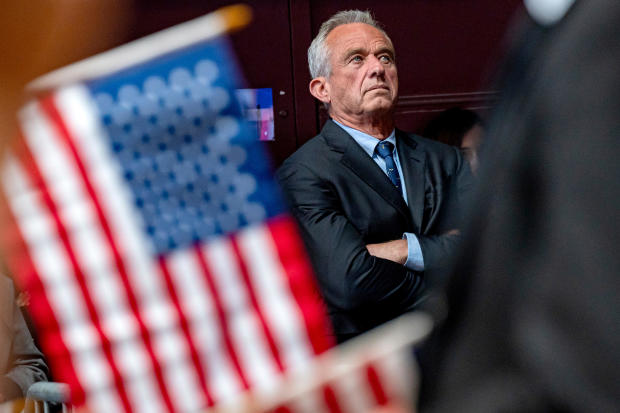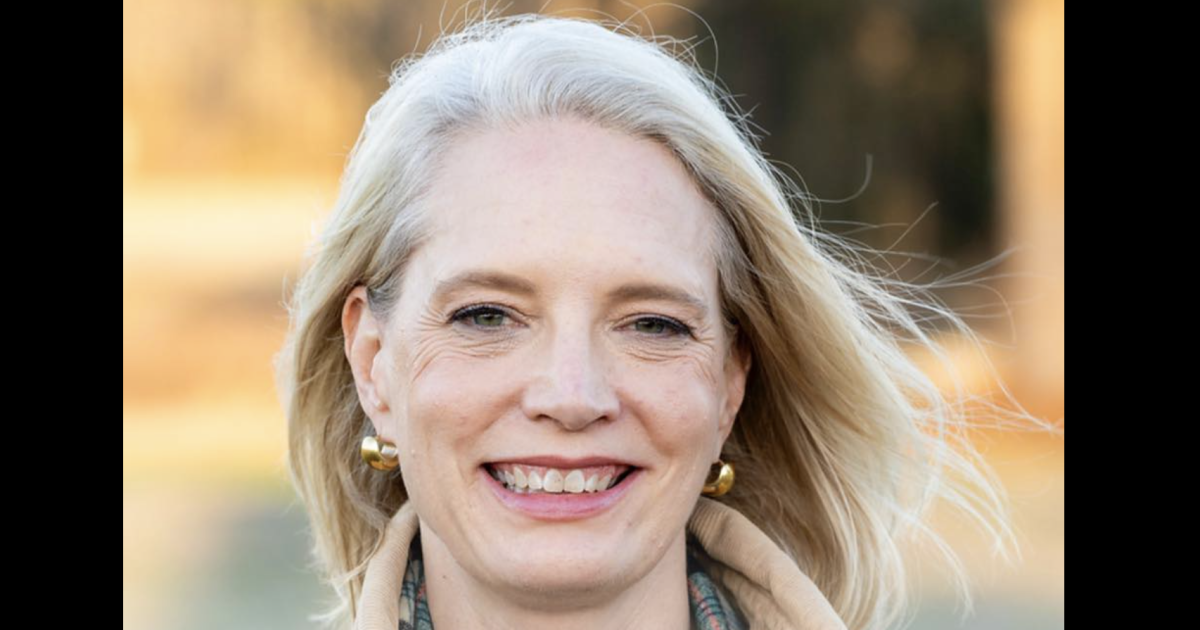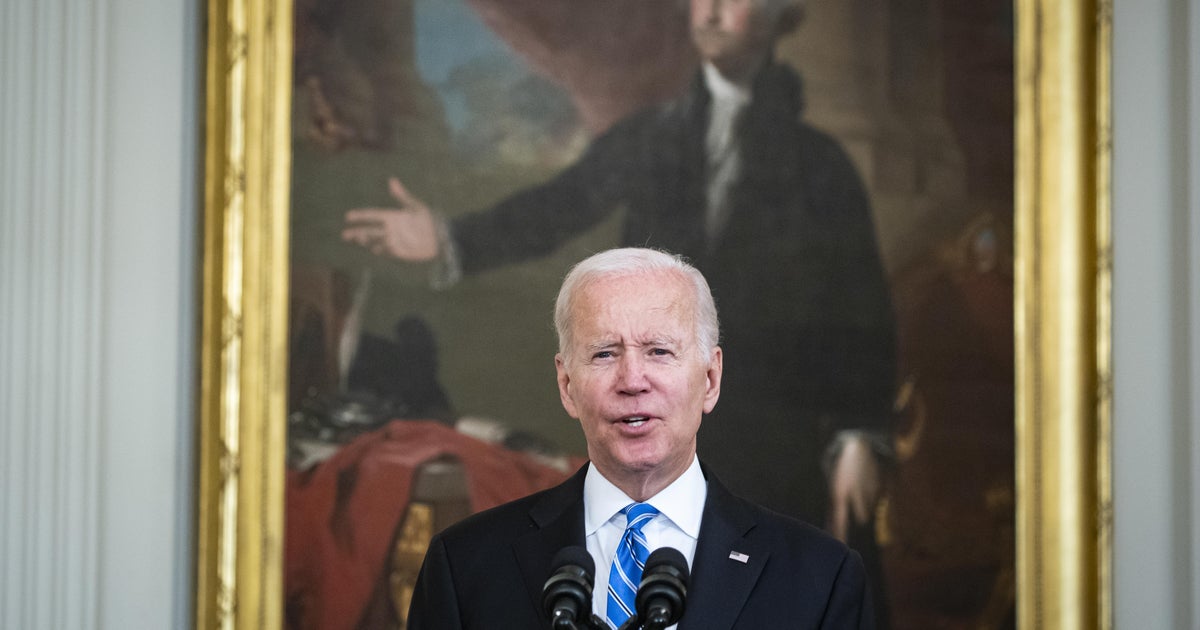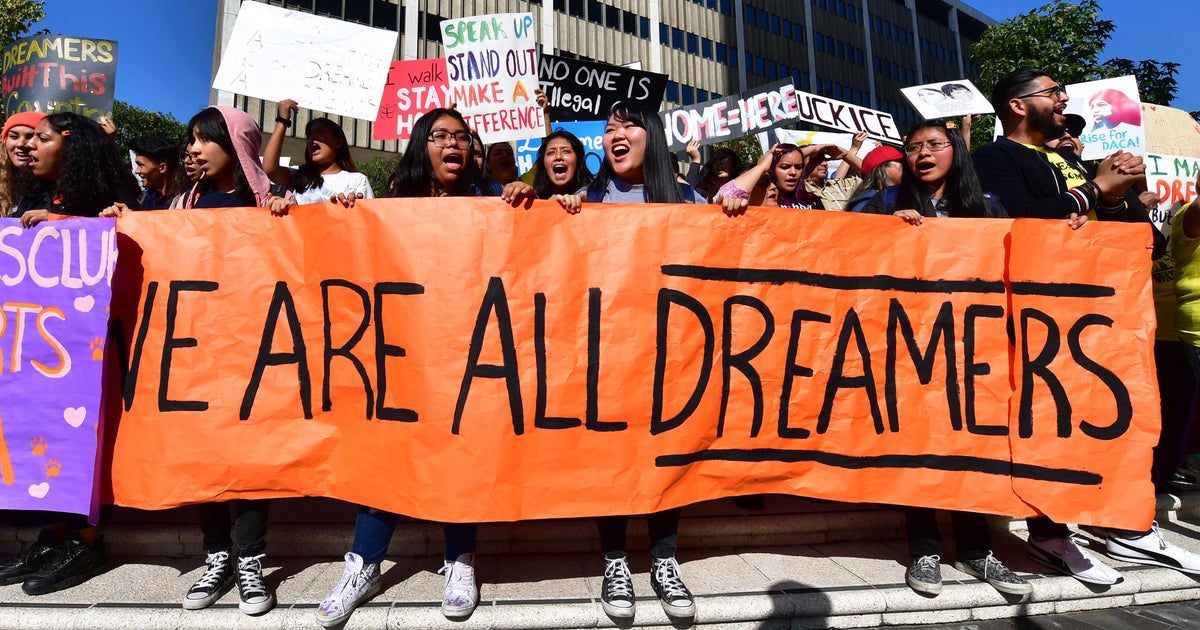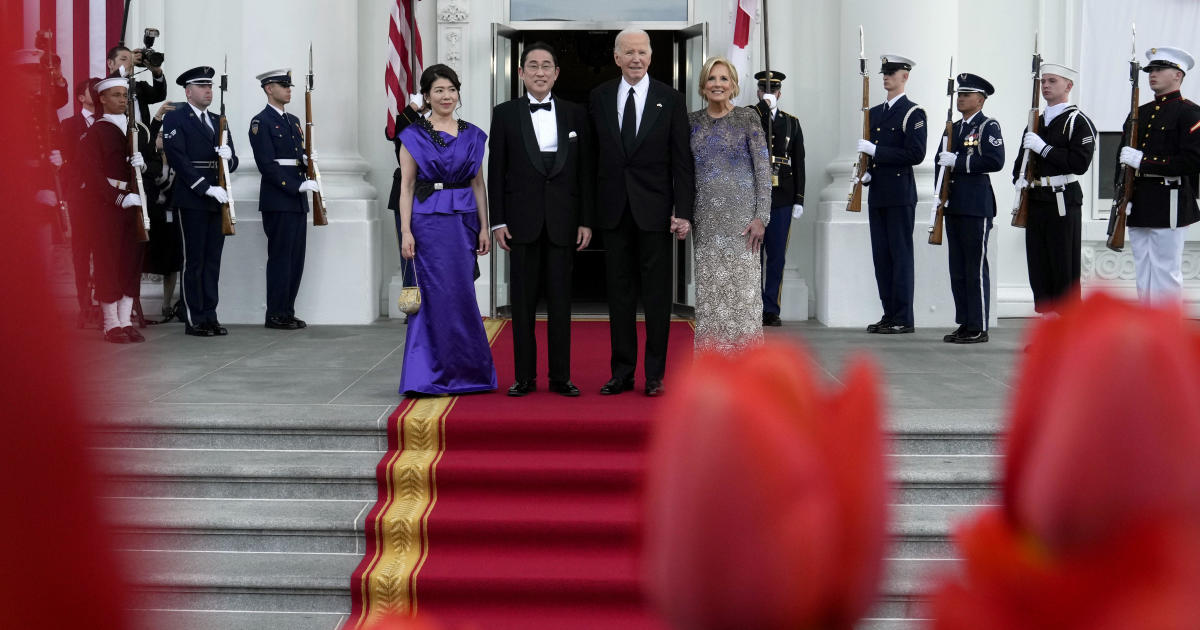RFK Jr.'s quest to get on the presidential ballot in all 50 states
Washington — In mid-April, Robert F. Kennedy Jr. was on the ballot as an independent presidential candidate in Utah and Michigan, though his campaign says it is working to get him on the ballot in all 50 states and the District of Columbia.
Kennedy's backers insist he's not pursuing his White House bid just to hand the election to another candidate. They say he's the real deal and has a shot at winning the 270 electoral votes needed to win the presidential election.
Getting on the ballot in enough states to secure 270 votes — just over half the 538 votes in the Electoral College — is no small feat for a third-party contender. But it's possible.
"I think he has a very good chance of getting onto all 50 ballots," said Bernard Tamas, an associate professor of political science at Valdosta State University who studies third parties. "The short answer is, I can't say definitively that he will, but it looks like he's on track for it."
Kennedy's campaign says it has completed signature gathering in seven other states in addition to Utah and Michigan — Nevada, Idaho, Hawaii, New Hampshire, North Carolina, Nebraska and Iowa.
The super PAC supporting Kennedy, American Values 2024, says it has collected enough signatures in Arizona, Georgia and South Carolina.
And yet, the campaign has yet to complete the paperwork and submit the petitions in those states. It noted that it still has months in most states to submit the paperwork because most states' deadlines aren't until July or August.
The campaign says it's trying to evade legal battles by picking the right time to hand in the petitions, holding onto the signatures until the 11th hour in hopes that the signatures will face fewer challenges.
Kennedy has already run into a paperwork snafu in Nevada. In March, the campaign learned that it would likely have to start the signature process all over again after failing to include a vice presidential candidate on the petition it used to collect signatures in the state.
"After successfully collecting all of the signatures we need in Nevada, the DNC Goon Squad and their lackeys in the Nevada Secretary of State's office are outright inventing a new requirement for the petition with zero legal basis," Kennedy campaign ballot access attorney Paul Rossi complained.
In addition to varying state regulations for ballot access and expensive legal battles, Kennedy faces opposition from Democratic groups aiming to undermine third-party campaigns.
Earlier this year, the Democratic National Committee formed a team to challenge third-party and independent presidential candidates. The effort will depend on other groups like Third Way, MoveOn, and a new super PAC, Clear Choice, backed by allies of President Biden.
"Only two candidates have a path to 270 electoral votes — President Biden and Donald Trump," said DNC spokesperson Matt Corridoni. "The stakes are high and we know this is going to be a close election. That's why a vote for any third-party candidate is a vote for Donald Trump."
The Kennedy campaign said it plans to secure ballot access in all 50 states, dismissing suggestions that Kennedy aims to help former President Donald Trump's bid for the presidency by taking votes from Mr. Biden.
"Our campaign is a spoiler. I agree with that. It's a spoiler for President Biden and for President Trump," Kennedy said when he revealed his running mate, Nicole Shanahan, last month.
In some states, the time frame for collecting signatures is brief. Others have provisions for signature thresholds to be reached in every county of a state. More than half the states require independent candidates to have a running mate.
Collecting enough signatures isn't difficult in every state. Many only require 1,000 to 5,000 signatures, Tamas said. Louisiana requires no signatures and a $500 fee. Other states have higher thresholds. Texas requires over 113,000 signatures, and Florida requires more than 145,000.
And those are the number of valid signatures required. Any third-party candidate needs to overshoot that target in order to make sure they have enough in case some of the signatures are found to be invalid.
In states like Hawaii, where the Kennedy campaign claims to have gathered enough signatures, it's more convenient to run under a party affiliation rather than as an independent candidate. Kennedy supporters are also collecting signatures in California, Mississippi, North Carolina and Delaware to establish the "We The People" party, which can then nominate Kennedy as its presidential candidate.
The Kennedy campaign says it's aiming to collect 60% over the signature threshold in each state.
"We have the field teams, volunteers, legal teams, paid circulators, supporters, and strategists ready to get the job done," said campaign press secretary Stefanie Spear. "We are exceeding all our benchmarks and will be announcing new states each week."
But Tamas says Kennedy should be aiming higher — closer to double the required number of signatures.
"I'm surprised they're saying it's as low as 60, you just can't take any chances," Tamas said.
Collecting signatures is expensive. Kennedy's super PAC estimates that it will cost around $40 to $50 million just to collect all the necessary signatures, although Tamas noted RFK Jr.'s running mate, Shanahan, the billionaire ex-wife of Google co-founder Sergey Brin, has the financial resources.
Collecting the signatures isn't the hardest part — it's the battle over the signatures that's the real fight, Tamas said. The Democratic Party will be fighting hard to invalidate Kennedy's signatures.
"You really have to prepare for a battle, so a lot of the cost is not actually getting the signatures, but actually the legal fees of fighting each state," Tamas said.
Democratic Party members are already trying to block Kennedy from getting on the ballot in Hawaii and Michigan.
Historically, there have been independent candidates who secured ballot access across nearly all states. In 1968, George Wallace, the former governor of Alabama, and in 1992, businessman Ross Perot both appeared on the ballot in all 50 states. Ralph Nader's candidacy in 2000 extended to 43 states.
Only Wallace managed to win any electoral votes. Perot's impressive 19% of the popular vote in 1992 did not translate to the Electoral College.
Perot's former campaign manager, Russell Verney, said third-party candidates must overcome more obstacles today than in the past.
"Every time there's a reasonably successful independent candidate, the state legislatures, which are made up of Republicans and Democrats, who by definition do not like competition, increase the state barriers to getting on the ballot," Verney said. "The requirements to get on these state ballots continues to get more onerous in every election cycle."
But "someone in RFK's position, I don't think the Democrats are going to stop him," Tamas said. "I think he's going to be on — if not all — then probably most of the ballots."
A successful third-party candidate has to focus on individuals who aren't being represented by the major parties, Tamas said, and that's a problem for Kennedy.
"He's all over the place, and it's really not clear what's the disaffected group he's trying to tap into," Tamas said. "He's running on conspiracy theories is part of it. But if someone's a conspiracy theorist, chances are they're going to support Donald Trump."
At this point, if Kennedy's ballot petitions were validated in all of the states where his website says the signature gathering is complete — Nevada, Hawaii, Idaho, Nebraska, Iowa, North Carolina and New Hampshire — plus Louisiana, which, as noted, does not have a signature requirement, and the two states where he is on the ballot — he could win 73 electoral votes. Add in the three states where his super PAC says it has the signatures, and that's another 36, putting him at 109.
The latest YouGov/Economist national polling shows Mr. Biden and Trump tied with 44% and Kennedy at 3%.
Kennedy's support is likely to drop off before November, Tamas predicted.
But it's not yet clear whether Mr. Biden or Trump stands to lose more from Kennedy's presidential bid.
"Nobody really knows for sure who he's going to take votes from," Tamas said.
